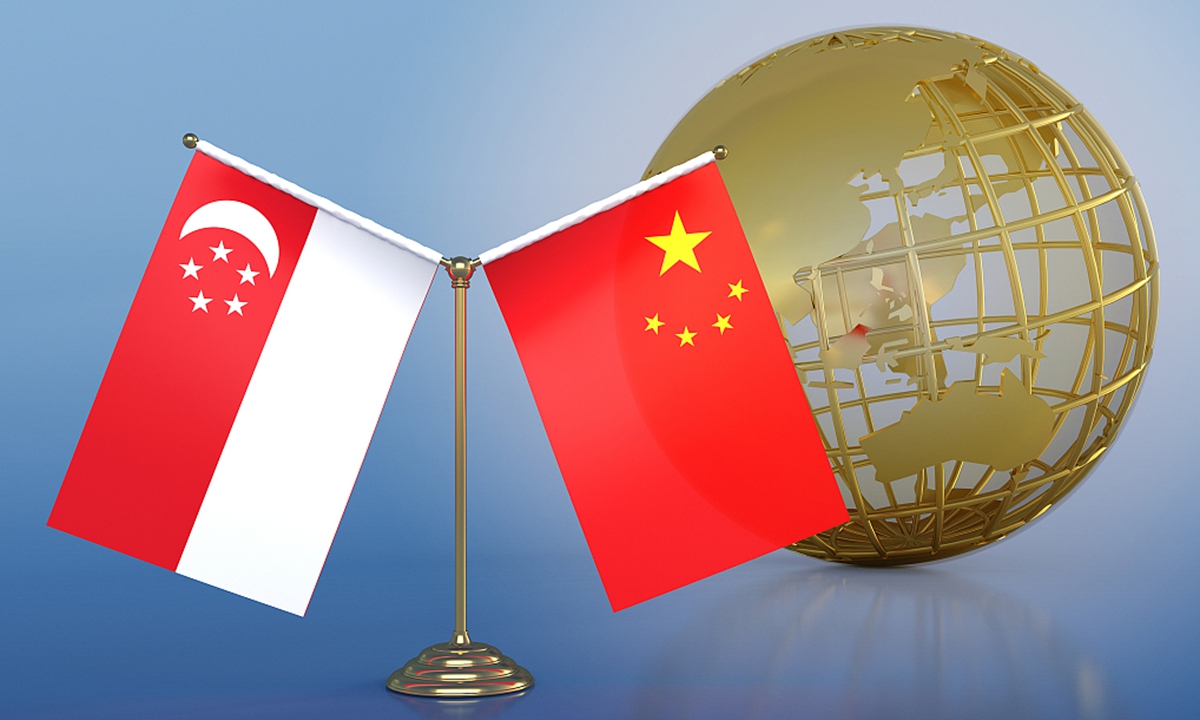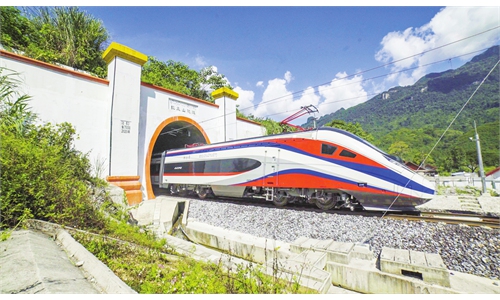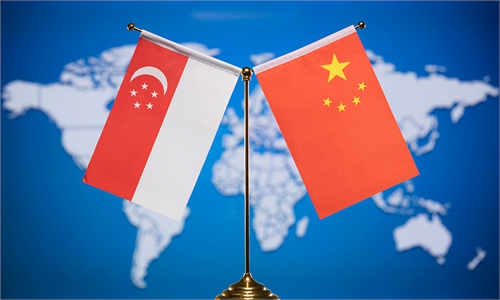China, Singapore to strengthen economic ties
Expanded bilateral cooperation to boost regional development: expert

China Singapore Photo:VCG
With China seeing rapid economic rebound, there could be increasing cooperation opportunities between the world's second-largest economy and other economies. For Singapore, bilateral economic ties are expected to expand and deepen this year, experts said, amid the visit of the Southeast Asian country's head to China.
Cemented economic ties between China and Singapore in expanded areas will play more of a contributor to economic growth and prosperity for members of ASEAN and the Regional Comprehensive Economic Partnership (RCEP) in the post-COVID-19 era, they continued.
Singapore's Prime Minister Lee Hsien Loong will embark on a six-day official visit to China from Monday to April 1, marking his first trip to the country in four years and his first since the pandemic.
Lee's office said on Sunday that during his trip, he will make an official visit to South China's Guangdong Province, Bo'ao in South China's Hainan Province for the Bo'ao Forum for Asia Annual Conference and Beijing at the invitation of Chinese Premier Li Qiang.
"Singapore has been walking steadily and neutrally on the world stage with its own views despite some Western bias on China, and Lee's attendance at the Bo'ao Forum will offer insights from the perspective of Singapore and the whole of Asia, promoting regional stability and development," Chen Fengying, an economist and former director of the Institute of World Economic Studies at the China Institutes of Contemporary International Relations, told the Global Times on Monday.
As the US and European economies are deteriorating, it is increasingly important for Singapore to strengthen cooperation with China, especially in the economic and trade fields, Liang Haiming, dean of the Belt and Road Institute at Hainan University, told the Global Times on Monday.
IMF Managing Director Kristalina Georgieva said at the 2023 China Development Forum in Beijing on Sunday that China's economy is seeing a strong rebound. "Our analysis shows that an increase of 1 percentage point in GDP growth in China leads to a 0.3 percentage points increase in growth in other Asian economies, on average - a welcome boost," Georgieva said.
As China pushes forward high-quality development marked by high-end manufacturing and green industries, it could provide many opportunities for Singapore to give full play to its advantages, according to Chen.
"Singapore and China are both working toward reducing our carbon footprints and achieving more sustainable economic growth. Singapore has committed to achieve net zero emissions by 2050, and China has a 2060 carbon neutrality target. Companies providing sustainable solutions should seize these opportunities," Singaporean Trade and Industry Minister Gan Kim Yong said at a forum in November last year.
If Singapore wants to strengthen participation and play an irreplaceable role in the China-proposed Belt and Road Initiative and obtain huge benefits, it needs new thinking and measures, according to Liang.
"Although China's demographic dividend in manufacturing has dwindled in recent years, its demographic dividend in the financial industry, services industry and consumption sector has just begun," Liang noted, adding that it is necessary for Singapore, an important wealth management center in Asia, to grasp the rising opportunities.
The digital economy is becoming one of the new highlights of bilateral cooperation. In November 2021, China formally applied to join the Digital Economy Partnership Agreement, which was proposed by Singapore, New Zealand and Chile.
China and Singapore are close neighbors whose bilateral cooperation started early with a free trade agreement (FTA) agreed upon in 2009.
A protocol on upgrading the FTA was signed on November 12, 2018. For the first time, China and Singapore incorporated the BRI into the FTA, acknowledging its pivotal role in spurring all-round bilateral collaboration, win-win deals, common prosperity and regional development.
"The FTA is being reviewed again. We are having subsequent negotiations, which we hope we will be able to complete before too long," Lee told an interview with China Central Television on March 17.
In 2022, the growth rate of China's trade with eight RCEP member countries was in double digits. For Singapore, the change was 22.8 percent to a value of $115.1 billion, Chinese customs data showed.



